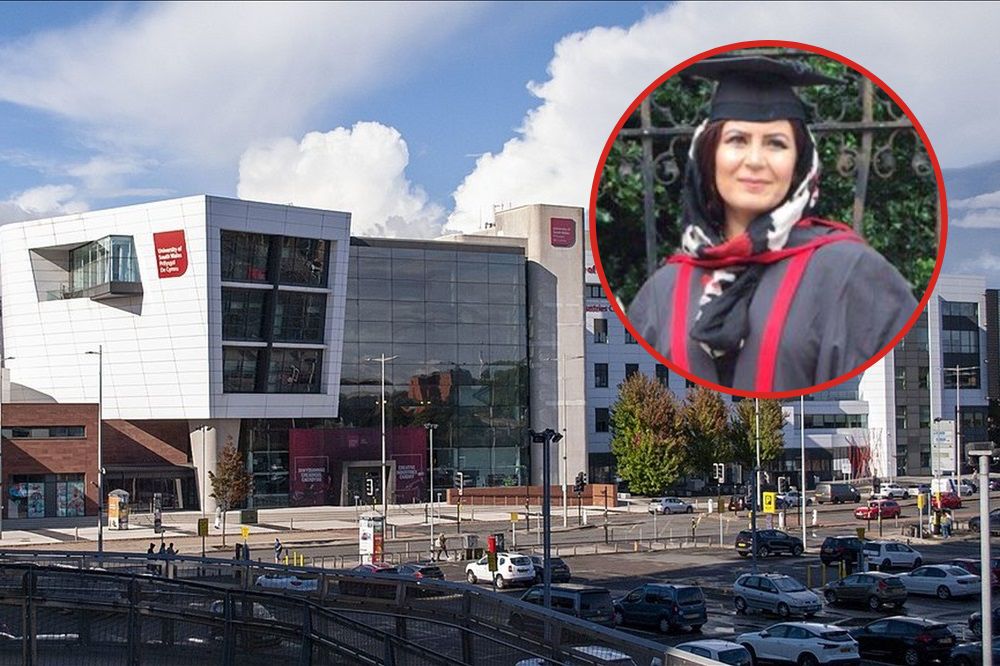A plea to salvage the journalism course at the University of South Wales

Ronahi Hasan – Former USW student and journalist
Losing something dear to you can be profoundly impactful, especially when it’s taken away against your will. It becomes more than just an object; it symbolises your identity, a part of yourself that you have fought hard to reclaim.
Imagine the sting of realising that the very thing you held onto for so long, hoping it would stay forever, is slipping away. For someone who has experienced discrimination and sought refuge in a new country, seeing a cherished symbol of identity vanish is a double blow.
While scrolling through social media, I came across a post on Facebook by one of my former tutors. They mentioned that the journalism course at the University of South Wales will be discontinued next year.
This building, where I earned my first academic degree, represents more than just an institution; it is a testament to resilience and the pursuit of self-worth.
When I applied to study at the University of South Wales in 2013, I was a Syrian refugee seeking sanctuary from the horrors of war. Now, as a British citizen, I reflect on my journey from displacement to empowerment.
The conflict in Syria ignited a fervent desire within me to advocate for my people, to shed light on their plight, and to speak truth to power through the medium of journalism.
As a freelance journalist and former student on the course, the news of its impending closure due to declining enrolment deeply troubles me.
This decision strikes a personal chord, as this course not only honed my professional skills but also provided a sense of purpose and belonging in my tumultuous journey as a refugee.
Darkest days
The journalism course provided me with invaluable skills and knowledge that enabled me to amplify the voices and narratives of my people in Syria during the darkest days of the war.
It was here that I learned the power of storytelling and the importance of bearing witness to human experience. Beyond honing my journalistic craft, this course instilled in me a vital component of my resilience and identity as a refugee.
Despite challenges posed by dwindling student enrolment, I urge the university to reconsider its decision to scrap the journalism course. Instead of viewing declining numbers as an unbeatable obstacle, we should see it as an opportunity to innovate and adapt to changing circumstances.
One potential solution is to transition the course into a remote learning format, allowing students from around the globe to participate without the constraints of geographical boundaries.
By offering flexible online modules, the university can tap into a diverse pool of aspiring journalists who may lack the means to relocate or attend classes in person.
Additionally, the university could explore financial assistance programs or scholarships specifically tailored to journalism students, thereby alleviating the burden of tuition fees for those facing economic hardships.
By making the course more accessible and inclusive, we can ensure that aspiring journalists from all walks of life have the opportunity to pursue their passion and contribute to the field.
Strong ties
Also, to attract more candidates the university could collaborate with media organisations and industry partners to create internship programs and job placement opportunities for journalism graduates.
By fostering strong ties with the professional community, the university can enhance the employability of its students and demonstrate the real-world impact of a journalism education.
The journalism course is not just another academic program—it is a catalyst for social change, a platform for amplifying marginalised voices, and a beacon of hope for aspiring journalists like me.
I implore the university to recognise the intrinsic value of this course and take proactive measures to preserve it for future generations. Together, we can ensure that the spirit of journalism continues to thrive, transcending borders and transforming lives.
Support our Nation today
For the price of a cup of coffee a month you can help us create an independent, not-for-profit, national news service for the people of Wales, by the people of Wales.





